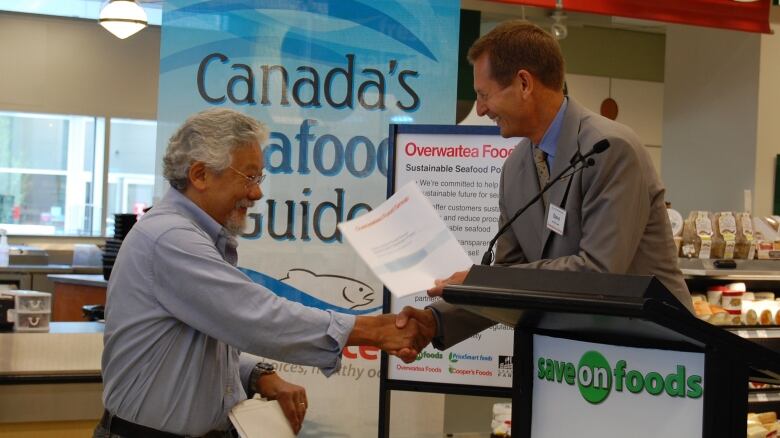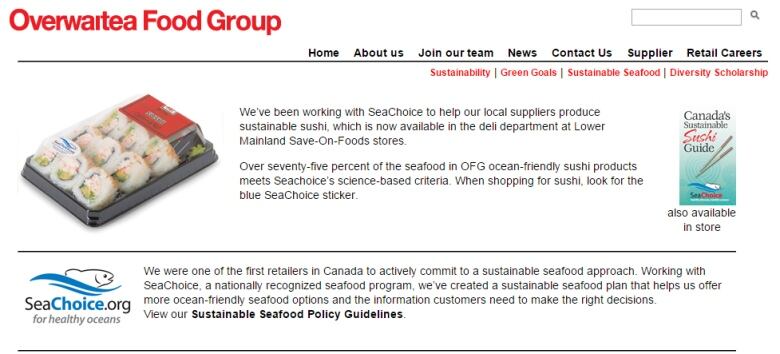Overwaitea Food Group dropped by sustainable seafood program SeaChoice
SeaChoice said it couldn't verify where fish came from and will no longer vouch for sustainability

SeaChoice, a national sustainable seafood program, has dropped one of its most prominent partners,the Overwaitea Food Group, due in part to ongoing problems with getting information about where the fish sold in stores werecaught.
Retailers who sign on with SeaChoice get a stamp-of-approval that at least some of the seafood they sell is considered sustainableand can label products with green SeaChoice "Recommended" stickers.
When Overwaitea first joined SeaChoice in 2009, the partnership was heralded by environmentalist David Suzuki in a Vancouver Save-On-Foods store as the first major chain to make such a commitment.
"It was disappointing," said Jay Ritchlin, a director-general for the David Suzuki Foundation which oversees SeaChoice. "Overwaitea had been a good partner and had tried to do some good things in the past."
"From here on, we will no longer be vouching ... for any of the fish or sustainability claims made at Overwaitea stores."
Overwaitea stores include the brands Save-On-Foods, Urban Fare, PriceSmart Foods, Cooper's Foodsand Bulkley Valley Wholesale.

Traceability a core issue
Where seafood comes from and how it was caught are both important pieces of information in deciding whether that stock can be considered sustainable.
For example, SeaChoice tells consumers to avoid conventionally-farmed shrimp from everywhere but the U.S.and choose instead trap-caught shrimp from Nova Scotia, or B.C. spot prawns.
Ritchlin declined to offer specifics about what led SeaChoice to end the partnership, but said there were ongoing problems getting information from Overwaiteaand with verifying the consistency of labels in stores.
"Until some of the real core issues around the traceablility of fish ... can be fixed, and really given the attention that it deserves, there's not really the ability to make any claims one way or the other about what is being sold in the Overwaitea food group stores," he said.
Overwaitea plans new partnership
Overwaitea still had SeaChoice branding on its website as of Monday afternoon, but it will be required to remove that, as well as all SeaChoice stickers and signs in stores, said Ritchlin.
In a statement, the company said it "remains deeply committed to our sustainable seafood initiatives."
"Overwaitea Food Group ... has been actively exploring a new partnership with a leading national sustainable seafood program, which we plan to announce in the coming weeks."

Corrections
- An earlier version of this story gave the wrong recommendation for farmed shrimp. In fact, SeaChoice tells consumers to avoid conventionally farmed shrimp from everywhere but the U.S.Aug 11, 2015 12:12 PM PT












_(720p).jpg)


 OFFICIAL HD MUSIC VIDEO.jpg)
.jpg)



























































































